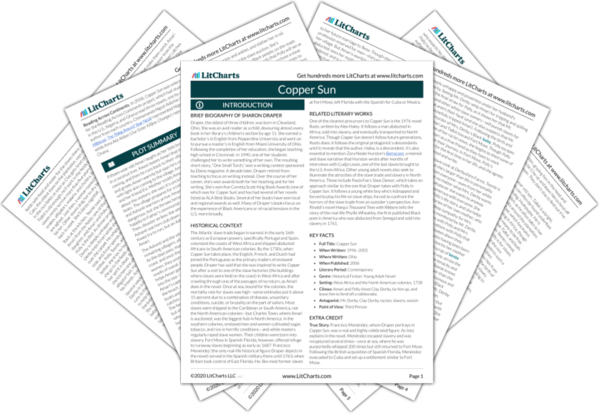It doesn’t take long for Polly and Teenie’s relationship to move forward and for Teenie to show genuine interest in Polly. Despite Teenie’s kindness for asking about Polly’s story, though, Polly still goes out of her way to use racist language and convey that she thinks poor white people have it just as bad as slaves do. Teenie, however, makes it clear this isn’t true—poor white people, even indentured servants, are
not slaves. As uncomfortable as Clay makes Polly, it’s implied that Polly won’t ever have to put up with Clay raping her—an abuse reserved for Black slaves.


